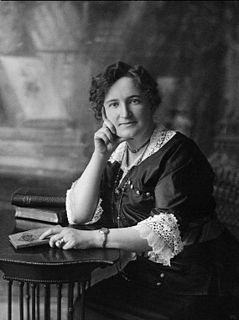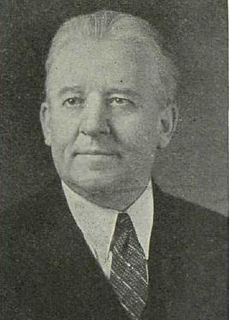A Quote by C. S. Lewis
A man's physical hunger does not prove that man will get any bread; he may die of starvation on a raft in the Atlantic. But surely a man's hunger does prove that he comes of a race which repairs its body by eating and inhabits a world where eatable substances exist. In the same way, though I do not believe (I wish I did) that my desire for Paradise proves that I shall enjoy it, I think it a pretty good indication that such a thing exists and that some men will.
Quote Topics
Related Quotes
Farmers everywhere provide bread for all humanity, but it is Christ alone who is the bread of life...Even if all the physical hunger of the world were satisfied, even if everyone who is hungry were fed by his or her own labor or by the generosity of others, the deepest hunger of man would still exist...Therefore, I say, Come, all of you, to Christ. He is the bread of life. Come to Christ and you will never be hungry again.
Unless a man has pity he is not truly a man. If a man has not wept at the worlds pain he is only half a man, and there will always be pain in the world, knowing this does not mean that a man shall dispair. A good man will seek to take pain out of things. A foolish man will not even notice it, except in himself, and the poor unfortunate evil man will drive pain deeper into things and spread it about wherever he goes.
A good man will never harm or oppress another. A good man will share his last morsel of food with others in need, and die of hunger when he no longer has any food -- instead of cheat or steal from others to survive. Selflessness. Humility. Truthfulness. These are the three marks of an honorable man.
Very often pessimistic people speak against their own desire. They want to undertake some work, and they say, 'I will do this, but I don't think I shall succeed in it.' Thus they hinder themselves in their path. Man does not know that every thought makes an impression on the consciousness and on the rhythm with which the consciousness is working. According to that rhythm that reflection will come true and happen; and a man proves to be his own enemy by his ignorance of these things.
There are two men in each one of us: the scientist, he who starts with a clear field and desires to rise to the knowledge of Nature through observations, experimentation and reasoning, and the man of sentiment, the man of belief, the man who mourns his dead children, and who cannot, alas, prove that he will see them again, but who believes that he will, and lives in the hope – the man who will not die like a vibrio, but who feels that the force that is within him cannot die.
If there is a soul, what is it, and where did it come from, and where does it go? Can anyone who is guided by his reason possibly imagine a soul independent of a body, or the place of its residence, or the character of it, or anything concerning it? If man is justified in any belief or disbelief on any subject, he is warranted in the disbelief in a soul. Not one scrap of evidence exists to prove any such impossible thing.
A man is not merely a man but a man among men, in a world of men. Being good at being a man has more to do with a man’s ability to succeed with men and within groups of men than it does with a man’s relationship to any woman or any group of women. When someone tells a man to be a man, they are telling him to be more like other men, more like the majority of men, and ideally more like the men who other men hold in high regard.
Where hunger is imposed by external circumstances, the act of starvation remains literal, a tragic biological event that does not serve metaphoric or symbolic purposes. It is only in a country where one is able to choose hunger that elective starvation may come to express cultural conflict or even social protest.
War proves nothing. To kill a man does not prove that he was in the wrong. Bloodletting cannot change men's spirits, neither can the evil of men's thoughts be driven out by blows. If I go to my neighbor's house, and break her furniture, and smash her pictures, and bind her children captive, it does not prove that I am fitter to live than she - yet according to ethics of nations it does. I have conquered her and she must pay me for my trouble; and her house and all that is left in it belongs to my heirs and successors, forever. That is war!
It is a Mormon truism that is current among us and we all accept it, that as man is God once was and as God is man may become. That does not signify that man will become God. I am sorry to say, and yet it is a truth, that not many men will become what God is, simply because they will not pay the price, because they are not willing to live up to the requirements; and still all men may, if they will, become what God is, but only those who are heirs of the celestial glory shall ever be possible candidates, to become what God is.
Fruits are always of the same nature with the seeds and roots from which they come, and trees are known by the fruits they bear: as a man begets a man, and a beast a beast, that society of men which constitutes a government upon the foundation of justice, virtue, and the common good, will always have men to promote those ends; and that which intends the advancement of one man's desire and vanity, will abound in those that will foment them.




































